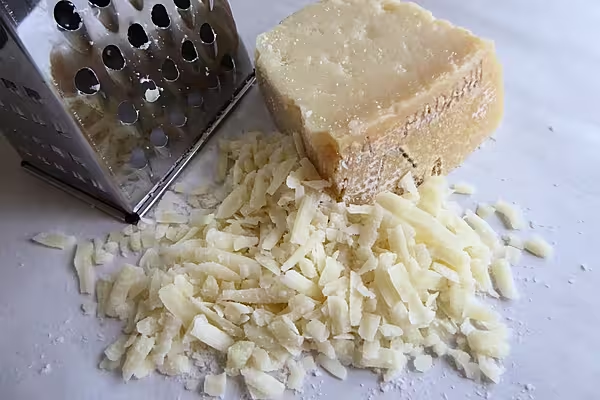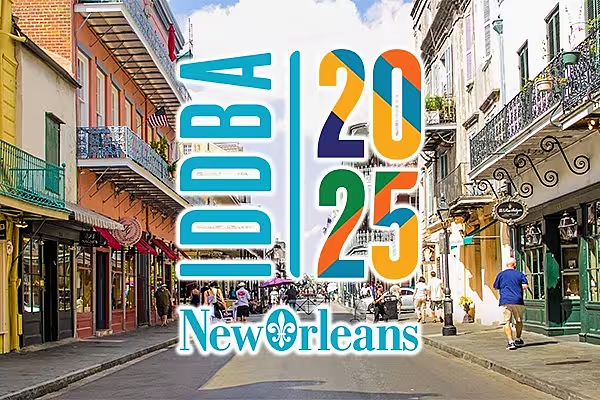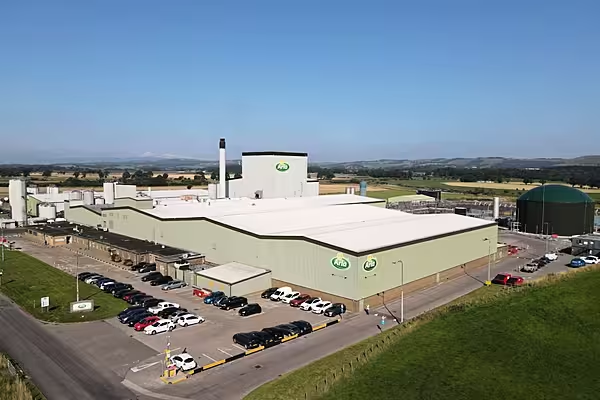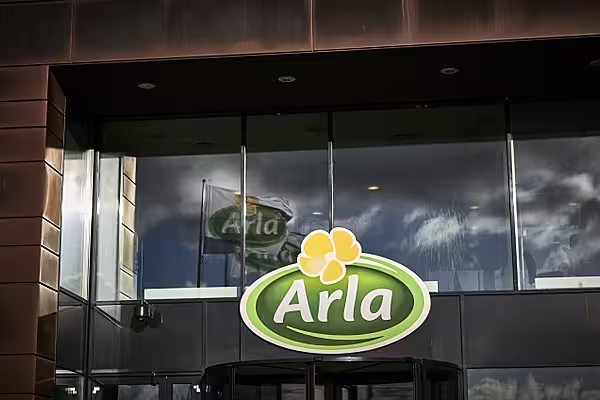The cheese police are on the case.
Acting on a tip, agents of the US Food and Drug Administration paid a surprise visit to a cheese factory in rural Pennsylvania on a cold November day in 2012.
They found what they were looking for: evidence that Castle Cheese Inc. was doctoring its 100 per cent real parmesan with cut-rate substitutes and such fillers as wood pulp and distributing it to some of the country’s biggest grocery chains.
One might be tempted to think of this as a ripped-from-the- headlines episode of "NYPD Bleu," except that the FDA wasn’t playing. Some grated Parmesan suppliers have been mislabeling products by filling them with too much cellulose, a common anti- clumping agent made from wood pulp, or using cheaper cheddar, instead of real Romano. Someone had to pay. Castle President Michelle Myrter is scheduled to plead guilty this month to criminal charges. She faces up to a year in prison and a $100,000 fine.
German brewers protect their reputations with Reinheitsgebot, a series of purity laws first drawn up 500 years ago, and Champagne makers prohibit most vineyards outside their turf from using the name. Now the full force of the US government has been brought to bear defending the authenticity of grated hard Italian cheeses. Which is good news for Neil Schuman.
For years, Schuman has been a one-man Reinheitsgebot, insisting that the fragrant granules Americans sprinkle on their pizza and penne ought to be the real thing; if not, the label should say so.
The stakes are 100 per cent real for him. Schuman’s Fairfield, New Jersey-based company, Arthur Schuman Inc., is the biggest seller of hard Italian cheeses in the U.S., with 33 per cent of the domestic market. He estimates that 20 per cent of US production — worth $375 million in sales — is mislabeled.
"The tipping point was grated cheese, where less than 40 percent of the product was actually a cheese product," Schuman said. "Consumers are innocent, and they’re not getting what they bargained for. And that’s just wrong."
How serious is the problem? Bloomberg News had store-bought grated cheese tested for wood-pulp content by an independent laboratory.
Cellulose is a safe additive, and an acceptable level is 2 per cent to 4 per cent, according to Dean Sommer, a cheese technologist at the Center for Dairy Research in Madison, Wisconsin. Essential Everyday 100% Grated Parmesan Cheese, from Jewel-Osco, was 8.8 per cent cellulose, while Wal-Mart Stores Inc.’s Great Value 100% Grated Parmesan Cheese registered 7.8 per cent, according to test results. Whole Foods 365 brand didn’t list cellulose as an ingredient on the label, but still tested at 0.3 per cent. Kraft had 3.8 per cent.
"We remain committed to the quality of our products," Michael Mullen, a Kraft Heinz Co. spokesman, said in an e-mail. John Forrest Ales, a Wal-Mart spokesman, said he questioned the reliability of testing a single sample and that Wal-Mart’s "compliance team is looking into these findings."
Jewel-Osco is also investigating, spokeswoman Mary Frances Trucco said in an e-mail. "We pride ourselves on the quality of products we deliver for our customers," Trucco said.
"We strongly believe that there is no cellulose present," Blaire Kniffin, a Whole Foods Market Inc. spokeswoman, said in an e-mail, adding that it could have been a false positive. "But we are investigating this matter."
According to the FDA’s report on Castle, obtained through the Freedom of Information Act, "no parmesan cheese was used to manufacture" the Market Pantry brand 100% grated Parmesan Cheese, sold at Target Corp. stores, and Always Save Grated Parmesan Cheese and Best Choice 100% Grated Parmesan Cheese, sold by Associated Wholesale Grocers Inc., which along with its subsidiaries supplies 3,400 retail stores in 30 states. Instead, there was a mixture of Swiss, mozzarella, white cheddar and cellulose, according to the FDA.
Castle has never been an authorized Target vendor, according to Target spokeswoman Molly Snyder. “We are investigating the information provided in the report,” she said in an e-mail. Jeff Pedersen, an executive vice president of Associated Wholesale Grocers, had no comment.
DairiConcepts, a Springfield, Missouri-based cheese maker that’s a subsidiary of Dairy Farmers of America, said on its website that in a test of 28 brands, only one-third of label claims about protein levels in grated parmesan were accurate. The company blamed fillers such as cellulose.
Until recently, there was little incentive to follow labeling rules. Criminal cases are rare. That’s because the FDA, which enforces the country’s food laws, prioritizes health hazards, said John Spink, director of the Food Fraud Initiative at Michigan State University. But civil lawsuits abound. A January 29 complaint accuses McDonald’s Corp. of selling pure mozzarella sticks that contain starch, considered a filler, a claim the company denies.
Cheese makers commit adulteration because it saves money.
Marty Wilson, chief executive officer of New York-based Sugar Foods, which buys cheese from Schuman and supplies major pizza chains with to-go packets of parmesan, said whenever his contracts come up for renewal, competitors peddling ersatz cheeses surface. And he has lost business to them. "We’re constantly battling cheap imitators across all of our product lines," Wilson said.
Bob Greco of Cheese Merchants of America said competitors hawking bastardized products have underbid him by as much as 30 percent. "The bad guys win and the rule-followers lose," Greco said.
The FDA regulates what can legally be called Parmesan or Romano according to standards established in the 1950s to ensure that manufacturers wouldn’t sell cheeses wildly different in composition.
Americans love their hard Italian cheeses. Last year, US Parmesan output rose 11 per cent from 2014 to around 336 million pounds, while Romano production grew 20 per cent, to 54 million pounds, according to US Department of Agriculture data.
Italian producers, however, aren’t loving it as much. The Parmigiano Reggiano Consortium, a trade group based in Rome, asked the European Union in December to protect its manufacturers against US companies that were using the names of their cheeses and Italian flags on their packaging. "A deceit" is how the organization’s president, Giuseppe Alai, characterized Americans’ use of Italian names and symbols.
Of all the popular cheeses in the US, the hard Italian varieties are the most likely to have fillers because of their expense. Parmesan wheels sit in curing rooms for months, losing moisture, which results in a smaller yield than other cheeses offer. While 100 pounds of milk might produce 10 pounds of cheddar, it makes only eight pounds of Parmesan. That two-pound difference means millions of dollars to manufacturers, according to Sommer.
Slippery Rock, Pennsylvania-based Castle produced mainly imitation cheeses for nearly 30 years. The company, whose factory was adorned with crenelated battlements and curved archways to look like a medieval castle, had $19 million in sales in 2013.
The trouble started in 2010 when it began making what it called 100 per cent grated Parmesan. A plant manager designed flawed recipes, and after Castle fired him in 2012, he alerted the FDA, the company said in a December 2012 letter to the agency, obtained through the FOIA.
The FDA accused Castle Cheese of marketing as real grated Parmesan what was in fact a mixture of imitation cheese and trimmings of Swiss, white cheddar, Havarti and mozzarella. After the probe, Castle stopped production of the problematic cheeses and dumped inventories. The company filed for bankruptcy in 2014.
A lawyer for Michelle Myrter and Castle Cheese didn’t respond to requests for comment. In the 2012 letter to the FDA, Castle said there was inadequate documentation, and the FDA could note only the potential that the products weren’t 100 percent pure.
Lauren E. Sucher, an FDA spokeswoman, said the agency couldn’t comment on pending legal cases. "The FDA takes economic fraud very seriously," she said in an e-mail.
The FDA’s investigation may be the spark that changes things, said John Umhoefer, executive director of the Wisconsin Cheese Makers Association.
"The industry wants to be known for a wholesome, safe, honest product — it’s what’s kept the industry growing for 100 years," he said. "The wholesomeness of dairy products is a treasured part of our story."
News by Bloomberg, edited by ESM. To subscribe to ESM: The European Supermarket Magazine, click here.














